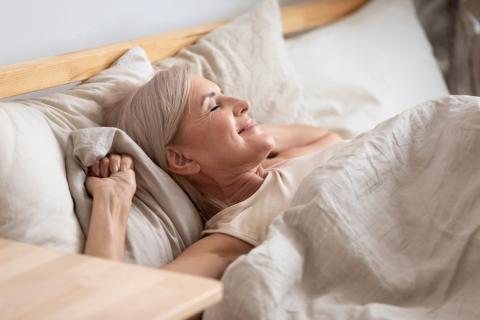
Most of us have heard of melatonin as a sleep aid and for good reason – a few hours before bedtime, our body starts making this hormone as its main job is to help prepare us for sleep and to help us keep a healthy sleep-wake cycle.
We know that healthy sleep – and therefore healthy melatonin levels – is foundational for good health; sleep is an essential function that lets our body recharge and work on repair and maintenance. Sleep is also critical for maintaining a healthy blood sugar, helping to maintain a healthy metabolism and weight and achieving a balanced mood and emotional state.
Most of us have experienced that sleep deprivation feels awful, however most of us aren’t aware that sleep deprivation is a risk factor for a host of different cancers. We now have research showing a link between sleep and cancer which may be related to the action of melatonin. To explore this link, researchers decided to study a group of nurses, for whom shift work is common. It was found that a lower level of melatonin among nurses who regularly worked nights, was linked to an increased risk of breast cancer. More research is connecting a lack of melatonin in people exposed to light at night and cancer risk. Melatonin is a strong antioxidant which has known anti-cancer benefits such as reducing inflammation, decreasing the impact of harmful estrogens in the body and boosting our anti-cancer immunity. Without a healthy sleep-wake cycle and adequate melatonin levels at night, not only are we compromising our sleep but we are increasing cancer risk at the same time.
Here are 3 things you can do to achieve healthy melatonin levels:
- Ensure that you are able to set aside some time for relaxation even before bed. Plan a quiet period of time where you are avoiding doing anything too stimulating, including using electronics. You could read a book, take a warm bath, do some yoga/stretching or try some meditation.
- Avoid stimulating substances before bed like caffeine, nicotine and even alcohol. Oftentimes, alcohol can be sedating but will ultimately result in poor sleep quality.
- Keep your room quiet, cool and dark to set the right environmental cues for sleep. Since melatonin production in decreases when we are exposed to light at night, keep the lights off for sleep and dimmed or very low during relaxation time before bed.
If you need further support with sleep, consider seeing a naturopathic doctor who can look into your case and recommend individualized therapies for you!
Author: Dr. Sukriti Bhardwaj, ND
CCNM Integrative Cancer Centre Resident